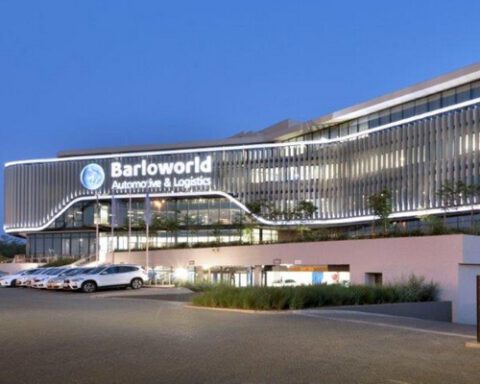African Rainbow Capital Investments’ (ARCI’s) low-ball offer to buy out minorities – at less than the value its own managers deem the company to be worth – seems to encapsulate the thought-provoking failure that has been Patrice Motsepe’s investment fund since it listed on the JSE in 2017.
That’s because offering 975c a share – which may be a 12% premium to yesterday’s closing price of 866c, but which is at a 22.8% discount to ARCI’s net asset value (NAV) – means “either they are taking shareholders for a ride or they’re admitting that the NAV is overstated. It’s one of those two things,” argues RECM chair Piet Viljoen, who views the whole set-up since inception in 2015 as “scandalous”.
The decision to throw in the towel now is especially intriguing given that at least one of ARCI’s key investments – the rapidly expanding TymeBank – is set to shoot the lights out. It’s also an ignominious end to what was supposed to be the pre-eminent Black empowerment investment vehicle on the market.
In the results presentation that followed the delisting announcement on Tuesday, ARCI said: “Over 99% of the portfolio is now defined as high growth or mature, with only six companies, or 1% of the portfolio, remaining in the early stage of their lifecycle. This will continue to improve the predictability of earnings and ensure lucrative growth prospects in future.”
Besides Tyme, ARCI owns a chunk of mobile telecoms group rain, the phosphate mine Kropz plc and a stake in Alexander Forbes. So why bail, incurring more than a little shareholder wrath in the process?
For one, says ARCI, there’s limited liquidity in the stock and the market price doesn’t reflect the true value of the underlying investments, which is prejudicial to shareholders.
In an interview with Currency, co-founder Johan van Zyl says: “One of the things to get the value up and close the discount to NAV was a buyback process, and people just dumped the shares, so our free float is so small now – 10% – and that is sort of the main thing.”
The other issue is ARCI’s Mauritian domicile, which ARCI now wants to shift to South Africa. “We’re stuck in Mauritius where it’s becoming very difficult because none of the internationals see it as a go-to place to invest from anymore. And the tax regime has become very hostile in a way. And if you sell an asset in the fund now – the 65% of shares sitting with ARCI and related companies immediately have to pay the capital gains tax yet the money hasn’t been paid from the fund. So it’s a convoluted set of things.”
Unpopular management fees
Asked whether this skimpy buyout offer isn’t even more prejudicial to minorities, given the discount to NAV, Van Zyl says: “Our NAV is invested NAV. We’ve always said it: there are costs that we carry ourselves; we never said this is the company’s NAV.” In other words – it’s the “pure” value of its assets, without accounting for any of the costs, or the average holding company discount of 8%-12%. “We’ve been careful explaining it every time.”
Yet the valuation has been at the heart of constant griping from investors over ARCI’s unpopular management fees, given that these were initially set on the basis of the company’s NAV, which was determined by ARCI, not the market. In other words, the company paid itself fees based on what it thought it was worth – not on what the share price reflected.
The company always argued that Patrice Motsepe’s involvement through his Ubuntu-Botho Investments vehicle made ARCI Black-controlled and owned – which meant it could get access to deals it wouldn’t otherwise have had as a non-BEE player. Executive director Johan van der Merwe previously told this writer that “the only way to be able to compensate him for having a lock-in forever was to earn some fees”.
But outrage over fees peaked in 2020 when ARC issued stock to raise R750m – partly to pay its managers. In an interview back then, Van der Merwe said: “I don’t know whether people think we just suck those values out of our thumbs and that no-one checks … The values are interrogated; they’re audited. For the market to say we’re trying to manipulate our NAV to get bigger management fees is unfortunate, because basically what people are saying is that we’re crooks. And then they’re saying the auditors are also crooks. It is totally ridiculous.”
Three years later, in 2023, he professed himself “disillusioned” by the market: “First they were really unhappy about [the fee] and then we changed it and it’s made no difference.” The fee, he said, “was there from day one. Maybe some people didn’t like it, but if they didn’t they shouldn’t have bought [the] shares.”
For Viljoen, the problem is that ARCI paid too much for its assets, like rain, which makes up 27.6% of its portfolio and which stake is now valued at R5.64bn on ARCI’s books. Viljoen says this is evident in the less than 4% yearly growth in NAV that the company has shown since it listed. And at 975c, all you’ve earned had you bought into the company when the shares were priced at 850c ahead of its debut on September 7 2017, is a paltry 14.7%.
That is decidedly not a view shared by Van Zyl. “At Tyme there was R2bn in the book and we paid R300m for it,” he says. “At rain, the cash flow is enormous, and we paid a fair price. There were other buyers and they had to take us because they needed [our BEE credentials]. There was an offer on the table from other, credible people and we paid 85% of that.”
‘JSE is not what it used to be’
The plan to delist is also another blow to the JSE which has shrunk dramatically in a decade, though, in ARCI’s case, the company had toyed with the idea of going private as far back as 2020, given the inexorable waning of excitement in the local market
“The JSE is not what it used to be – you can’t easily get capital,” says Van Zyl, who recalls that when he started as Sanlam CEO in 2003, the insurer, which then had a market cap of R10bn, had 18 analysts covering it. “Now we have a single analyst covering ARCI [which is worth R20bn] and they maybe look at Tyme and rain and nothing else. And then some [of our businesses] are start-ups, so it takes a while to break even and with a lack of news you can’t drive a market; it simply doesn’t work.”
Given that the buyout offer isn’t a scheme of arrangement, investors can choose to stay invested in the unlisted ARCI. “We’ll have to create liquidity for them – you can’t say to people you can stay in, but you can’t sell your shares. So a few times a year we will come with offers where there’s a fair or reasonable and people can sell their shares.”
Market chatter has raised the possibility that unhappy minorities who don’t want to sell could use appraisal rights to force a better offer for shareholders. One person who has used appraisal rights against major corporates is activist Albie Cilliers. He tells Currency: “It certainly is a good argument for appraisal rights, as it’s a forced material adverse alteration of shareholder rights, because in an unlisted environment minority investors don’t enjoy the same enhanced protection as in a listed environment.”
Appraisal rights, first introduced into South African law in 2011, give minority shareholders the right to force a company to buy out their shares at a price reflecting their “fair value” when they dissent from transactions that have been approved by a special resolution of the shareholders, according to Maleka Femida Cassim, a professor in the mercantile law department at the University of South Africa.
However, given ARCI’s Mauritian domicile, this may not pan out.
Asked what he makes of the delisting price, Cilliers is habitually blunt: “It needs to be said that management was happy to be remunerated generously based on intrinsic value/NAV and now they expect minorities to accept a 22% discount to NAV in a delisting offer! Should management not now pay back 22% of their fees?”
Top image: Happier times (from left): Johan van Zyl, Patrice Motsepe and Johan van der Merwe on ARC’s listing in 2017. Picture: Supplied.
Sign up to Currency’s weekly newsletters to receive your own bulletin of weekday news and weekend treats. Register here.








